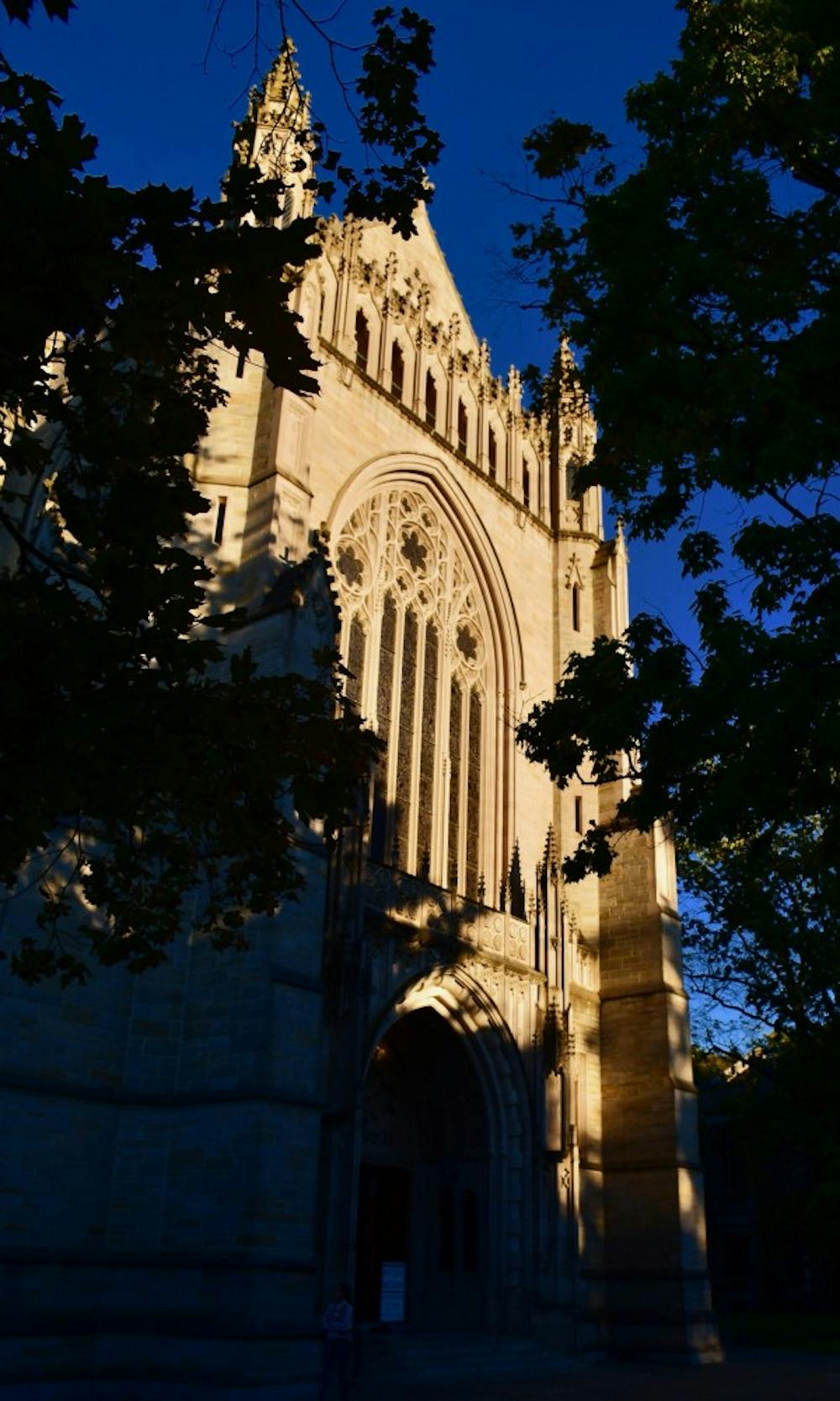Walking into the Center for Jewish Life, my stomach was doing somersaults. Although my dad is Jewish, he does not practice. This was my first time at a Jewish service. Raised as a Roman Catholic, I was nervous that my Catholic tendencies would make me a clear outsider.
Before Princeton, I had never attended a non-Catholic school. I lived less than a block away from my local Catholic church, and all of my friends were Catholic. I had no real experience with any religion other than Catholicism beyond a few brief discussions about Islam and Judaism in world history class.
Last week, a friend invited me to Shabbat, the weekly Jewish service held on Fridays at the Center for Jewish Life.
Walking into Shabbat, I was immediately welcomed by the rabbi. He asked me if I had been to Shabbat before, and when I told him I had not, he told me that he was excited for me to join them. I did not feel like an outsider at all — rather, I was embraced by the community.
On the university’s website, Princeton is declared “a place for all.” Princeton’s student body includes a range of diverse religions, and the Office of Religious Life reflects this range. Its website lists dozens of different religious groups, from Baha’i to Unitarian. While Princeton is a secular institution, its student body is not.
Religious groups can provide comfort to students, yet it is also important to step outside of our comfort zones. Religion can play an important role in shaping people’s opinions and actions. By learning about the religions of our classmates, we can better understand our peers.
Princeton promotes religion inclusivity in many ways. Not only are all religious services at Princeton explicitly open to the entire student body, but the Office of Religious Life also organizes a variety of interfaith programs. An example of one is the Religious Life Council, which is a group of religiously diverse students who gather weekly to discuss faith at Princeton. The University makes it easy for its students to expand their knowledge of different religions; it is up to us to take these opportunities.
Now more than ever, it is vital for us to educate ourselves on others’ beliefs and denounce ignorance. While the instances of religious ignorance we see in our daily lives may not extend beyond hateful jokes and underlying biases, there have unfortunately been some more extreme examples recently in our world. The shooting that occurred at the Tree of Life Synagogue in Pittsburgh is a tragic case of ignorance developing into evil. Another example of religious ignorance is Executive Order 13769, commonly referred to as the “Muslim ban,” with which Donald Trump attempted to ban travel into the United States from various Muslim countries on the grounds that it would reduce terrorism. In both of these instances, ignorance and disrespect for religion turned into intense hatred for those who appear different.

These are two extreme examples of religious discrimination and hatred, and it can seem impossible for us as individuals to prevent acts of evil such as these. Unfortunately, as Princeton students, we cannot stop every individual in the world from being anti-Semitic or Islamophobic. What we can do, however, is educate ourselves and combat this ignorance on a more local scale.
Understanding brings acceptance. While I am not going to convert to Judaism after going to Shabbat, the experience helped me better understand my Jewish friends and see the similarities between us.
Throughout the service, I noticed several similarities between Shabbat and the Catholic mass. Obviously, the specifics of the service differed from the masses that I am used to, but I noticed a familiar feeling of comfort and acceptance from the community gathered. Also, the songs had similar themes of love and compassion that reminded me of the Catholic songs I sing at church.
The 14th Dalai Lama said, “All major religious traditions carry basically the same message, that is love, compassion, and forgiveness. The important thing is they should be part of our daily lives.” These values of love, compassion, and forgiveness are human ideals that transcend religion. Whether Christian, Muslim, atheist, or a member of another religion, most people agree that these ideals are essential to humanity — or, at least, they should be.

Katie Goldman is a first-year from Western Springs, Ill. She can be reached at kpg3@princeton.edu.








